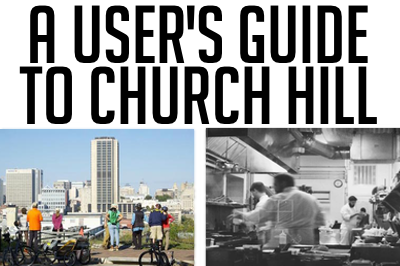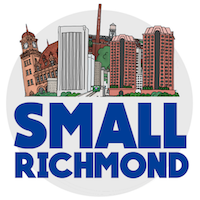RECENT COMMENTS
7th District Round Table notes
The 7th District Round Table met Monday evening at EDI on 25th Street. The main topics included a presentation by representatives from the City Assessors Office and a discussion of the structure of the of the roundtable.
Seventh District Round Table liaison Sharon Burton brought the meeting to order a few minutes after 6pm. Present were just over 40 people, a crowd representative of the district at large. Also present was Sam Patterson, assistant to Councilperson McQuinn.
The meeting began with an hour-long presentation by Richard Woodson of the City Assessor of Real Estate Office. He explained that the Assessment Office doesn’t send bills or collect taxes, they just generate the assessment of the property’s value.
He went on to explain that the Assessor’s Office conducts an annual estimation of property values through-out the city. This estimation is based on a review of sales of equivalent properties. The review compares properties based on type, age, size, condition, remodeled, features, location, etc. Woodson showed a map of the neighborhoods that they use to determine comparability. He explained that the assessment should correlate to market values as closely as possible. The review, while occasionally conducted in person and in detail, is not always done this way.
He pointed out that demand for properties in Union Hill, Church Hill North, and Union Hill have pushed up property values in surrounding areas. This sometimes rapid increase was voiced as a source of friction and frustration by many of the neighbors. They also voiced frustration at what what was described as disparities between house values on equivalent properties. Several people felt that their properties were over-assessed, to their detriment. Woodson said that some of the value different valuation and recent changes might be related to the fact that some of the areas around here did not have a history of sales informative enough until fairly recently.
Several members of the audience reacted very strongly to the presentation. While not all of one voice, their message was basically that increased assessment values means increases taxes and an increased monthly payment. This was a large vein of frustation, serious anger. People were feeling that assessment values were not reflecting actual potential sales prices. People are starting to see the long term effects of rising property values, seeing themselves not being able to keep up with the rising costs of living in these areas and this makes them angry. Incease in assessment leads to increased taxes, insurance, escroe payments. An example was given of one woman’s monthly payment increasing by $400/month, based on a $200,000 jump in property assessment in one year.
Woodson spent more time defending the effect of increased rates, rather than being able to speak to anything specific about what is happening in specific areas. He stated a few times that the basic mechanism of how this works in the city is set at the state level. Mention was made offhand of Florida’s homestead act, wherein someone is able to lock-in the amount that they are expected to pay in property taxes. This sounds like a great means to help middle/lower income remain in the neighborhoods — currently people less than 65 years old have little or no recourse. He explained that all neighborhoods get assessed the same, that the Assessor’s Office has a 90-95% ration between sales/assessments all around the city
Woodson explained that there are 4 avenues of appeal if you do not agree with your assessment. He also spoke about Tax Relief for the Elderly or Disabled, the Tax Freeze programs, and the Tax Abatement for Historic Renovation program.
Sharon Burton utilized discussion of the neighbors reaction to segue to the 2nd issue on the agenda: The Role and Structure of the Neighborhood Round Table. Ms. Burton, appointed liason by the Mayor and unpaid volunteer, stated that messages and information needs to flow from residents to mayor and the administration, and that the Roundtable Meetings can be that conduit.
She went to explain how the roundtable system will initially bet set-up. The 7th District Roundtable will consist of 25 to 30 representatives from each voting precinct & neighborhood in the district, forming a network. These representatives are responsible for for getting info to the Round Table at large. The representatives will in turn feed the information to civic associations and other neighbors and neighborhood organizations. There will also be 2 ad hoc committees, education and affordable housing.
She reiterated that the mayor is very interested in education and affordable housing. It was pointed out that neighbors could be part of the solution to address concerns related to the impact of the rising assessments by focussing on the affordable housing committee.
The next meeting will be the 3rd Monday in May, May 15th at 6pm at EDI. Notes from last month’s meeting (March 20) are available here.
TAGGED: real estate






Thank you for such a comprehensive cover of the meeting. You provide invaluable information for those of us who were not able to attend!
Ms.Burton still needs representatives for neighborhoods in Precincts 702 & 704. Please contact her at 780-1627 or scburton@comcast.net.
The next meeting (May 15) will feature an overview and general discussion of zoning in the East District by the Richmond Department of Community Development.